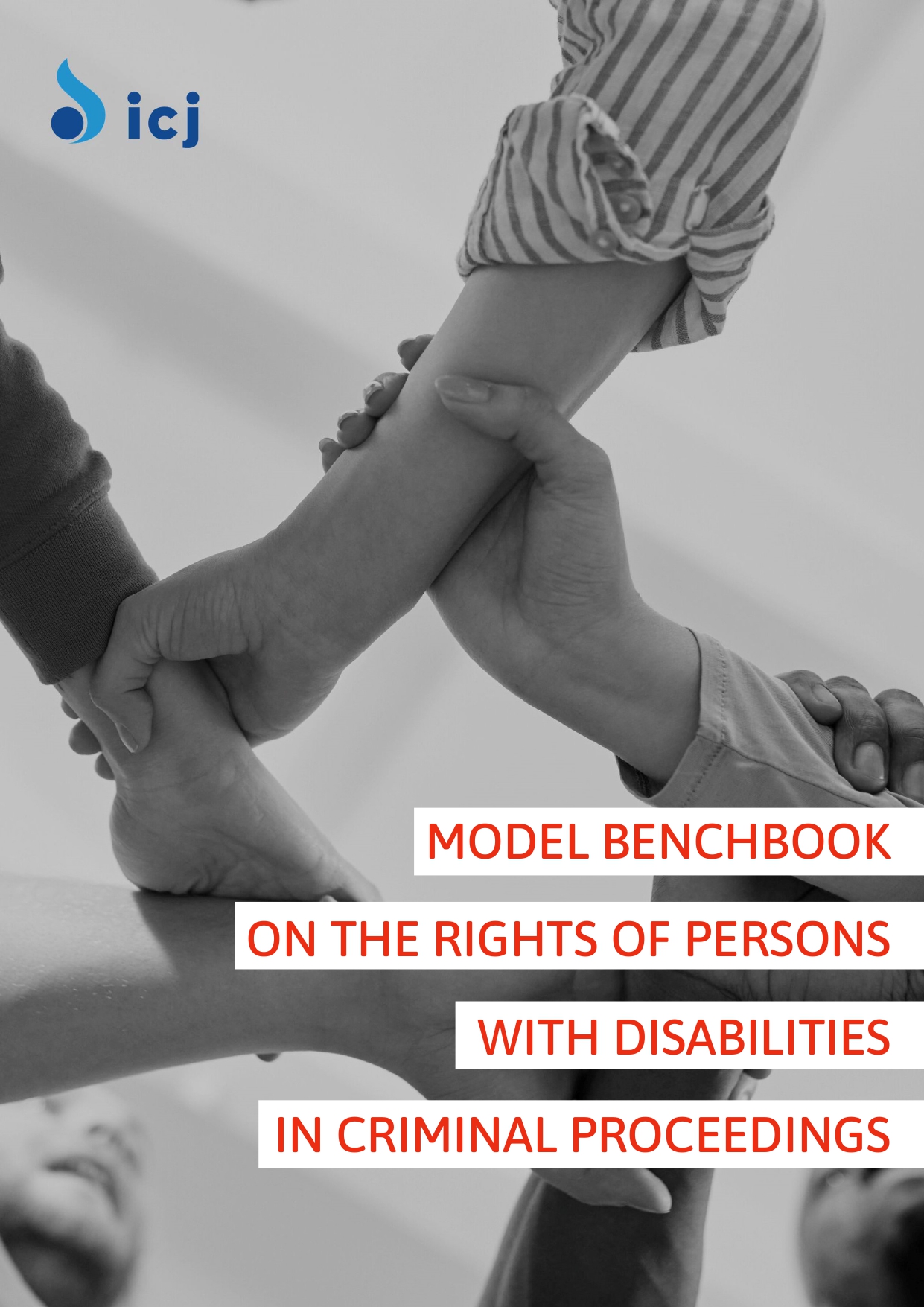Today, the International Commission of Jurists (ICJ) and Validity have published the Model Bench Book on the rights of persons with disabilities who are defendants in criminal proceedings. The Bench Book provides guidance to justice actors and State authorities on how to better ensure the protection of persons with disabilities’ rights in the context of criminal proceedings.
The Bench Book, the first of its kind in the European Union (EU), is primarily directed at justice actors – including judges, prosecutors and lawyers – involved in criminal proceedings, but will also be useful to a range of State authorities in implementing their obligations in terms of international law.
States are required by international law to ensure that all legal proceedings and processes are fully accessible to persons with disabilities, particularly those with intellectual or psychosocial disabilities. By providing a resource which informs and guides justice actors, the Bench Book will contribute to ensuring that criminal proceedings are conducted in a manner that is accessible to persons with disabilities.
“Persons with disabilities frequently encounter significant barriers in accessing justice in criminal proceedings across the EU, as States continue to fall short of meeting their international legal obligations,” said Karolína Babická, Senior Legal Adviser with the Europe and Central Asia Programme of the ICJ.
“The barriers are far-ranging and may be, attitudinal, systemic or legal, emanating from outdated and discriminatory laws and practices,” she added.
The Bench Book includes systemic recommendations to assist national authorities in aligning their systems and processes with international law and standards, including those emanating from sources such as the Convention on the Rights of Persons with Disabilities (CRPD), the jurisprudence of the CRPD Committee and the UN Special Rapporteur on the Rights of Persons with Disabilities, Principles and Guidelines on Access to Justice for Persons with Disabilities.
Key recommendations include:
- Ensuring equal treatment before the law and recognizing the legal capacity of defendants with disabilities including by reviewing and revising policies that restrict these rights;
- Considering the implementation of restorative justice processes that are accessible to persons with disabilities;
- Training justice professionals on disability rights and procedural accommodations;
- Developing mechanisms for the early identification of disabilities through individual assessments;
- Providing intermediaries or facilitators to assist persons with disabilities in criminal proceedings;
- Ensuring the right to be accompanied by a support person throughout the proceedings;
- Making necessary procedural adjustments and providing information and communication in accessible formats;
- Guaranteeing the right of access to a lawyer and to legal aid;
- Ensuring the accessibility of court facilities and services to all persons with disabilities;
- Upholding the right to be present at trial and the presumption of innocence;
- Ensuring that detention centres are accessible and supportive, with deprivation of liberty being a measure of last resort and prohibiting institutionalization on the basis of disability.
Background
The Model Disability Bench Book was developed by the ICJ as part of the Enable project, led by the Validity Foundation. It incorporates and builds on research and input from national partners in eight EU Member States: Bulgaria, the Czech Republic, Lithuania, Portugal, Romania, Slovakia, Slovenia, and Spain. This Bench Book served as the foundation for the development of national bench books tailored to each jurisdiction in the eight target countries, thereby enhancing the accessibility and fairness of justice systems for persons with disabilities in the EU and beyond.
You can download the Bench Book here.
See the Annex III. summarizing all the recommendations here.





